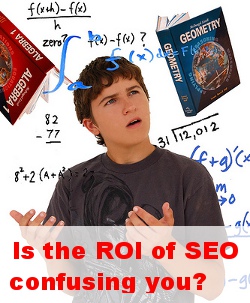
The question of how many blog posts to display on the home page of a blog is a pretty tough call for a lot of people. After all, it affects the page load time, the number of generated pages in your archive, the number of pages indexed by search engines, and most importantly, the user experience.
What is the best number of blog posts per page? The answer will depend on a number of things, but I want to offer some food for thought, and share what I have experienced.
If you don’t already have a blog, you may want to sit this one out, but if that is the case, I encourage you to read “10 Really Good Reasons to Blog“.
As an SEO guy, I am not always right about every SEO topic. I try my best to keep my percentage of being right pretty high, but even I can get it wrong sometimes. It usually happens because of overlooking the obvious things I should be doing, but conveniently neglect.
The reality about SEO is that sometimes the right answers take a little bit of testing. Some people may call it “tinkering”, but that implies doing it without forethought. My suggestion is to stop “tinkering”, but always be testing. In this instance, I do not suggest making frequent changes, so it is good to make your best guess the first time.
Changing Number of Posts Per Page: Think Ahead!
It was not so long ago that I faced the question of changing the number of blog posts per page, on this blog. I had previously displayed ten articles on the home page and on each archive page. It was not a good idea, but then, I get wrapped up in client work and forget about my own stuff. I am often like a cobbler with barefoot children. Once I got around to this issue of blog posts per page, I was really glad to finally address it. I know that others have this question, and in fact, a friend who writes “Social Media Philanthropy” recently had a poll of his readers to see what they think.
Depending on your blog theme, the number of blog posts on your home page will generally be the same number which will be listed in each of your archive pages, too. I don’t mean the kind of archive like my complete archive where I list all of my articles, but rather the pages that are generated for chronological archiving, tag archiving, and category archiving.
Changing the number of posts per page will change other factors of your website, so it is best to think ahead and not do it too often. I will tell you a bit about what it will change.
Changing Blog Posts Per Page Has Multiple Effects
Let’s think about how a change in the number of posts per page will change other things. When my blog displayed ten posts per page, there was the obvious outcome that each page was longer. It makes sense that the potential for keyword phrase matching in a given search engine index may be higher, because of the lengthier content on each page. It also took a bit longer for each page to load, so that was a downside. Plus, consider how daunting a huge long scrollbar can look to somebody just wanting some quick and easy information.
An even greater downside to having large numbers of posts per page is the much lower number of total pages of the blog. More pages can be a really good thing, but of course not just any pages. You can add pages just by adding a bunch of extra blog tags or categories, too, but it is not recommended.
I am certainly not saying that you should go and set your blog to display two articles per page just to bump up your page count. That could be a bad thing. After all, just consider how many times somebody will want to click to the next page, and how annoying that could be. The rule of thumb is that you have three clicks before you lose somebody. Certainly some blogs are much higher, and some are much lower, but it is really important to keep those readers happily surfing on your awesome wave. You do this by having everything just right … or at least as close as possible.
The most important factor is how it will affect the people reading your blog, and not the search engine indexing. If people like your blog, they are more likely to link to it, subscribe to it, and keep coming back. This should always be the primary consideration, but this really can make a big difference in search engine indexing, too.
Fewer Blog Posts Per Page Means More Indexed Pages
This is something I offer with caution. You do not want to aspire to a bunch of frivolous extra pages in search engines. You want search engines to index valuable, useful, and human-worthy content. That is what search engines want, too.
There is a lot of hype on one side or the other about allowing blog tag archives and category archives to be indexed by search engines. There are multiple easy ways to control this, and I use a (highly modified) WordPress plugin called “All-in-One SEO Pack” on this blog. Everything it does can be manually programmed into a WordPress blog, or any other website, but I consider it a handy tool.
A lot of people will argue about the perfect settings, and what to tell the search engines to not index. For example, in my category archive pages, I added the directive for search engines to not index the pages, but to follow the links found within them to other pages. It is in the header of the page and it looks like this:
Against some people’s notion of what works best, I have not included the content=”noindex,follow” directive in my blog tag pages (see example source code). This means that by default, my blog tag pages are being indexed. That is a lot of pages, and when you add up the differences in switching from ten blog posts per page to five blog posts per page, it multiplied the number of indexed pages in search engines. Best of all, it happened without any devious trickery or being spammy to search engines, and it simultaneously improved the user experience.
What About Duplicate Content Penalties?
I know that it is popular for people to wake up sweating profusely after having a nightmare about being penalized by search engines for having duplicate content. Search engines frown on duplicated content, because it has often been used in attempts to cheat rankings. It is the topic of many SEO discussions, and a fright to many bloggers and webmasters.
What is duplicate content? An easy way to describe this is by looking at two given blog tag pages. For example, if you seem my “SEO” tag, it may be significantly similar to the content of my “SEO blogging” tag. I also use the rel=”tag” attribute, but that is another article, and still relatively speculative in search engine recognition, and adherence.
If this gives you sweaty nightmares, stop freaking out, walk to the kitchen, and fix yourself a glass of warm milk (or better yet, Scotch). Then take a calming suggestion from good old Murnahan, and try to get back to sleep. Google and other search engines already have figured this out, and they know how blogs work. Yes, Google and other search engines have this under control, and they have indexed more than just a few other blogs.
It is extremely unlikely that you will be penalized for duplicate content, unless you are doing something to intentionally cheat the system. This is a topic for another blog post, but let me just stroke your hair and carry you back to bed. You will be just fine, and the monster under the bed will leave you alone until another time.
A Summary About Posts Per Page
Every blog is different, and some of us have really long and drawn out content, while others are much shorter articles. I also addressed this in a previous article about whether to use blog excerpts or full-length articles on your pages. The article is titled “Blogging Dilemma: Truncated Blog Excerpts or Full Blog Articles?” It is worth a read if you are on the fence about how to display your blog posts.
Because this can make such significant changes to the number of pages on your website, in your XML sitemap, and number of pages indexed in search engines, I suggest carefully limiting the number of times you change this.
I welcome your input, and if you found this useful or thought provoking, maybe your friends will, too. Please add your comments or questions and pass this along to other fellow bloggers.



